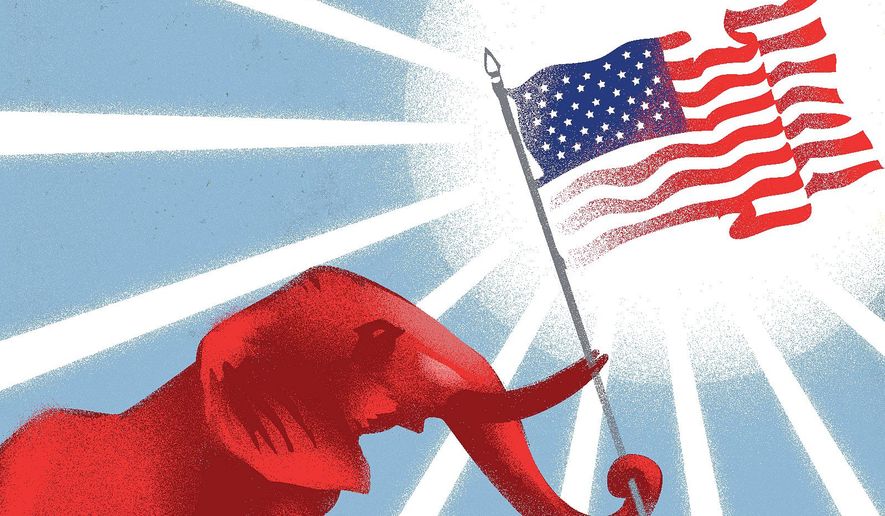OPINION:
Democrats entered the recent elections on a moral crusade but misread the temperament of voters. They sought to fundamentally restructure American democracy — pack the Senate by granting statehood to a federal district one-eighteenth the size of Rhode Island and turn the U.S. Supreme Court into a House of Lords.
This attempted power grab and their framing of issues got caught in the echo chamber of cable networks, woke academics and The New York Times. Defunding the police, racial quotas and punitive new taxes flopped.
The CNN exit poll reported 38% of voters identified as conservative and only 24% as liberal. Republicans won in Texas and Florida by attracting Latino voters, gained about 10 House seats and held state legislatures critical for redistricting.
However, Democrats flipped House seats in North Carolina and Georgia, GOP senators will be lucky to escape runoffs in the Peach State with their hides, and the $15 per hour minimum wage passed in decidedly anti-socialist Florida.
Lessons for Republicans are plain.
Americans want solutions and are willing to sacrifice free market principles where the facts on the ground indicate markets don’t work.
Even with Republicans controlling more statehouses, 30 states have enacted higher minimum wages than the federal standard, many are moving to protect Americans with pre-existing conditions should the Supreme Court strike down the Affordable Care Act, and better roads and fixing student debt always seem to be winning issues.
Republicans must move off backward-looking, reflexive conservativism to succeed. President-elect Joe Biden is more in the position of George W. Bush — who faced tough opposition in Congress but made big gains in his first congressional midterms — than Presidents Clinton and Obama, who hoisted ideas then considered too radical and got trounced in their midterms.
Republicans would be better off moving to the center on several of the above-mentioned issues and offering to cooperate with Mr. Biden.
When the federal minimum wage was set at $7.25 per hour in 2009, it stood at 33% of the average for all hourly workers. Updating that to 40% would take the federal minimum to $12 and help Republicans appeal to most Americans’ sense of fairness and to Black and Latino voters in particular.
House Democrats have a bill to link U.S. drug prices to those charged in other high-income countries. But overall, Americans pay 50% more for health care than the Germans and Dutch, who have similar insurance systems, and drug prices are just part of the problem.
When Mr. Biden proposes increasing the number of Americans with health insurance by boosting subsidies, Republicans should insist on benchmarking drug prices, medical services and hospital fees to German and Dutch norms. Their governments regulate prices and are hardly socialist paradises.
The gas tax was last raised in 1993. Adjusting it for inflation and imposing a mileage fee on electric vehicles would raise about $50 billion annually — only a down payment on a decent infrastructure program. But bottlenecks and congestion are costing more than $400 billion in lost GDP, and the taxes gained from fixing that could help retire the necessary additional debt.
That requires bigger deficits — an anathema to many Republican senators. But if borrowing to help private firms modernize and boost sales is good business, then the same is true for borrowing to improve roads, rails and wires businesses would use to move goods and boost incomes.
The federal government guarantees 90% of student debt, but the most fundamental problems are too many young people going to college and runaway tuition.
About half of new college students never complete a four-year degree or pursue a major that does not lead to a decent-paying career. They earn no more than the average high school graduate but end up saddled with a lot of debt. And easy student loans permit universities to pay little attention to rising costs and the payoff for the students they admit.
Forgiving student debt should be contingent on linking universities’ access to student loans to lowering tuition and their students’ record of debt repayment, and broad expansion of the Department of Labor’s successful apprenticeship programs. Those cover a wide range of occupations, and most trainees who complete those programs earn more than the average new college graduates.
Republicans must deal with the economy and voters as they find them, not as conservative ideologies hypothesize. Economists’ models of perfect competition are where children learn about markets, but the real world is a much messier place.
• Peter Morici,@pmorici1, is an economist and emeritus business professor at the University of Maryland, and a national columnist.




Please read our comment policy before commenting.